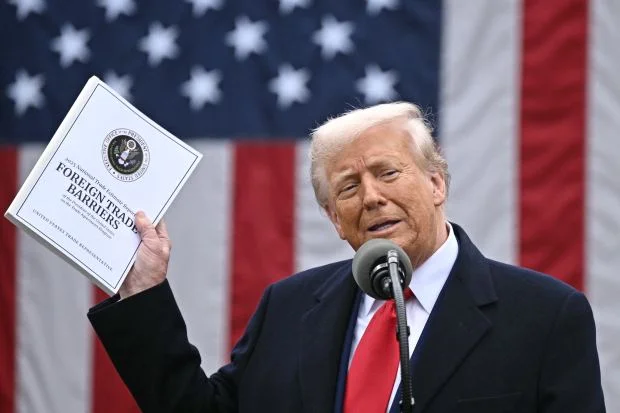
U.S. Businesses Sue To Block Trump Tariffs, Claiming Trade Deficits Are Not An Emergency
In a bold legal maneuver, a coalition of five small businesses has filed a lawsuit against President Donald Trump, challenging the recent tariffs imposed on foreign imports. This lawsuit, filed in the U.S. Court of International Trade, raises significant questions regarding the authority of the President to unilaterally impose tariffs under the guise of national emergency.
The plaintiffs argue that Trump’s "Liberation Day" tariffs, which impose a minimum 10% levy on imports from most countries, threaten the viability of small businesses across the nation. The Liberty Justice Center, which represents the small businesses, asserts that the claim of an emergency due to decades-long trade deficits is unfounded. "His claimed emergency is a figment of his own imagination: trade deficits, which have persisted for decades without causing economic harm, are not an emergency," the lawsuit asserts, directly challenging the legal foundation of the President's actions.
Among the plaintiffs are various businesses, including VOS Selections from New York, known for importing artisanal wines and spirits, and FishUSA, a Pennsylvania-based retail giant in sportfishing tackle. Others include Genova Pipe, which operates out of Utah creating plumbing and electrical conduit products; MicroKits LLC from Virginia, a maker of educational electronics; and Terry Precision Cycling, a Vermont-based women's cycling apparel brand. Each plaintiff faces the threat of increased costs that could adversely affect their operations.
The lawsuit meticulously details how tariffs are not merely a tax on imports but can act as a tax on consumers and small businesses alike, further complicating the already challenging economic landscape for entrepreneurs. It argues against the President's actions, which they claim undermine the foundational governmental principle that there shall be no taxation without proper legislative representation.
The legal representation for the businesses contends that the tariffs have not only targeted countries with which the U.S. has a trade deficit, violating the principles of fair trade, but have also negatively impacted sectors that were previously not under direct threat, thereby broadening the scope of the tariffs beyond their intended regulatory parameters.
As this legal battle unfolds, it not only raises critical questions about the balance of power between Congress and the Presidency concerning trade matters but also pushes the discussion into the broader implications of such tariffs on the economy. Will these small businesses be able to withstand the pressure of increased import costs, or will this lawsuit set a precedent that could reshape trade policy in the United States?
This is an unfolding story that merits close attention, as the outcomes could have ramifications not just for the plaintiffs, but for the small business landscape nationwide. As businesses across the country rally together against these tariffs, the question remains: how will the administration respond to this challenge?